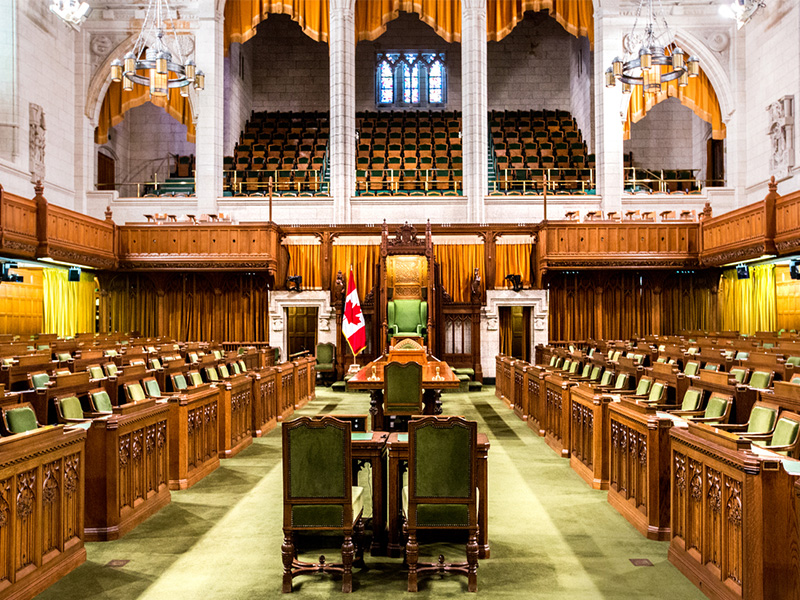
The federal government has passed legislation on several proposals laid out in its 2023 budget, as well as some older policies. It has also provided an update on a promise made in the Liberals’ 2019 election platform.
Nonetheless, several proposals from the 2023 budget haven’t yet been included in legislation.
The House of Commons resumes sitting on Sept. 18. Here’s a look at the state of the government’s major tax and estate-planning promises.
Passed into law
Proposals from the 2023 federal budget
The act containing the following proposals received royal assent on June 22:
- Boosting the limit on allowable educational assistance payment (EAP) withdrawals from RESPs to $8,000 from $5,000
- Allowing divorced or separated parents to open joint RESPs
- Including siblings as “qualifying family members” for RDSPs and extending the ability of a qualifying family member to be a plan holder
- Lowering the maximum annual interest rate that payday lenders can charge to 35% and capping payday loans
- Designating a single external body to deal with banking complaints
- Giving the Minister of Finance the ability to increase the coverage limit for the Canada Deposit Insurance Corp. until April 30, 2024
Expanded rules for mandatory tax disclosures
The expanded reportable and notifiable transactions regime now applies to transactions closed on and after June 22. The length of the reporting period has also doubled to 90 days from the day a deal closes, up from 45 days.
Reporting the fair market value of RRSPs and RRIFs
Issuers of RRSPs and RRIFs must annually report the fair market value of all property held by the plans at the end of the calendar year. The requirement is for the 2023 tax year onward.
Tax on house flippers
The tax on house flippers has been extended to include assignment sales. The extended tax applies for dispositions that occur after 2022.
Canada disability benefit (CDB)
The CDB has been established following royal assent of the Canada Disability Benefit Act on June 22. The benefit is meant for working-age Canadians living with disabilities and will supplement provincial and territorial support payments. However, much about the CDB’s structure remains unknown. Key details such as the amount of the benefit, eligibility requirements and payment period will be established later through regulation. The effective date of the legislation will be no later than June 22, 2024.
One-time GST credit increase
Eligible taxpayers received the so-called “grocery rebate” on July 5 following a promise made in the 2023 federal budget. The maximum credit was $153 per adult (up from $77), $81 per child and $81 for the single supplement (both up from $40).
Proposal with an update
The Liberals promised in their 2019 election platform to raise the CPP and QPP survivor’s benefit by 25%. In a statement, a Department of Finance official said the government is working with its provincial and territorial partners on this initiative, and “is currently in discussion with provincial and territorial governments as part of the 2022-2024 Triennial Review of the CPP.”
Proposals mentioned in the 2023 budget, but not included in legislation
None of the below have been tabled in legislation, but all appear in the Notice of Ways and Means in the 2023 budget:
- Employee ownership trusts
- Tax changes to retirement compensation arrangements
- Minimum tax for high earners (intended to come into force for the 2024 tax year)
- Updates to Bill C-208, which concerns intergenerational wealth transfers and would apply to transfers on or after Jan. 1, 2024
- The 2% share buyback tax that’s intended to apply as of Jan. 1, 2024, to the annual net value of equity repurchases by public corporations and certain public trusts and partnerships
- Making planning that results in non-CCPC status a reportable transaction so the CRA can assess whether or not the corporation is a “substantive CCPC”
Proposals with no major updates since our last check-in
- The Aging at Home Benefit was first proposed in the Liberals’ 2021 election platform. On that front, the National Seniors Council launched a consultation on March 20 regarding how to support aging at home. It closed April 23.
- The 2023 federal budget proposed that the Canada Revenue Agency pilot a new automatic filing service intended to help vulnerable Canadians receive benefits beginning in 2024. This concept was first promised in the 2020 speech from the throne.
- Phase 2 of a consultation on modernizing the employment insurance system, as proposed in the 2020 speech from the throne, closed in July 2022. The consultation’s report was released in September 2022. A Liberal spokesperson told The Canadian Press that EI reform was not included in the federal budget over concern that reforming the program amid a slowing economy could drive up premiums for workers and employers.
- These promises from the 2019 election platform were mentioned in Finance Minister Chrystia Freeland’s 2021 mandate letter, but no progress has been announced since:
- make the Canada Caregiver Credit refundable
- implement a Career Extension Tax Credit for working seniors
- Increasing the guaranteed income supplement by $500 for single seniors and by $750 for couples, beginning at age 65, was included in the mandate letter for Seniors Minister Kamal Khera, but no progress has been announced since.
- Nothing has been announced with regards to these 2019 election promises:
- increasing the Canada Child Benefit by 15% for kids younger than one year old;
- making EI maternity and parental benefits tax-exempt
- doubling the child disability benefit